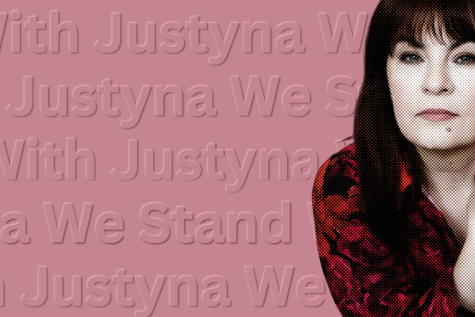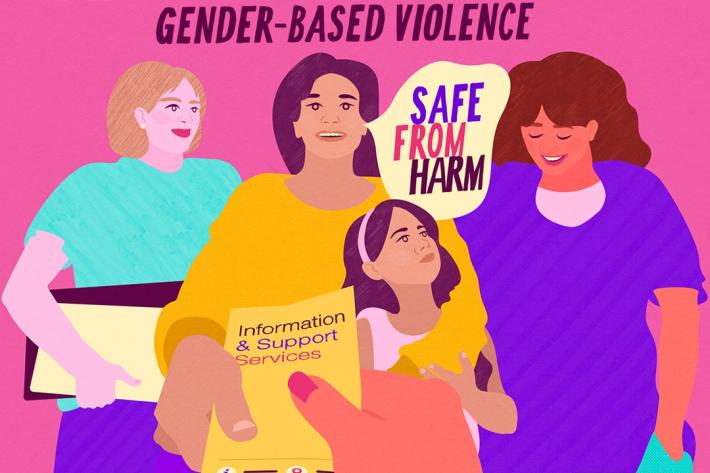Latest press releases
A selection of stories from across the Federation

Poland
Poland: Justyna Wydrzyńska’s Trial to Continue – A Shameful Blow to the Fight for Reproductive Rights
Today, instead of delivering justice, the court prolonged the legal persecution of Justyna Wydrzyńska by ordering a retrial.
For media inquiries


| 26 January 2022
Regression on Abortion Access Harms Women in Poland
26 January 2022 – One year after the ruling of Poland’s discredited Constitutional Tribunal banning access to abortion in almost all circumstances took effect, its devastating impact on the lives of women and all those in need of abortion care continues. The ruling has increased the extreme barriers women seeking access to abortion face and has had tragic consequences for many of them and their families. Since the ruling took effect on 27 January 2021, more than 1000 women have turned to the European Court of Human Rights in an effort to vindicate their rights, challenging Poland’s highly restrictive abortion law and seeking justice. These groundbreaking cases mark the first direct challenges to be filed before the European Court against Poland’s abortion law and the 2020 Constitutional Tribunal ruling. The applicants claim that the Polish abortion law causes them grave harm and violates their rights to privacy and freedom from torture and other ill-treatment. The Court is expected to begin ruling on some of these cases: K.B. v. Poland and 3 other applications; K.C. v. Poland and 3 other applications; and A.L.- B. v. Poland and 3 other applications. Nine leading international human rights organizations have filed third-party interventions to the European Court of Human Rights in these cases, including Amnesty International, the Center for Reproductive Rights, Human Rights Watch, the International Commission of Jurists (ICJ), the International Federation for Human Rights (FIDH), the International Planned Parenthood Federation European Network (IPPF EN), Women Enabled International, Women’s Link Worldwide, and the World Organisation Against Torture (OMCT). The interventions provide evidence and analysis drawing on international human rights law, comparative European law and guidelines from the World Health Organization. They outline the profound implications that highly restrictive abortion laws have on the lives and health of women and girls of reproductive age.

| 14 January 2022
New European overview shows failures to guarantee access to abortion care
Joint press release by the European Parliamentary Forum for Sexual and Reproductive Rights (EPF) and the International Planned Parenthood Federation European Network (IPPF EN) We mark the International Safe Abortion Day by highlighting that women and girls in Europe face unnecessary obstacles to access abortion care and in some countries are even forced to continue pregnancies against their will. The joint EPF-IPPF EN “European Abortion Policies Atlas” scores 52 European countries and territories on legal frameworks to access safe abortion care and clearly shows that Europe is not as progressive as it might seem.

| 14 January 2022
Poland: A Year On, Abortion Ruling Harms Women
Anniversary Marks Ongoing Assault on Women’s Rights, Rule of Law (Brussels, October 19, 2021) – Women, girls, and all pregnant people have faced extreme barriers to accessing legal abortions in the year since a Constitutional Tribunal ruling virtually banned legal abortion in Poland, 14 human rights organizations said today. Since the ruling, women human rights defenders have also faced an increasingly hostile and dangerous environment. Poland’s authorities should end efforts to undermine reproductive rights and weaken protections from gender-based violence. They should commit to protecting women human rights defenders who have faced ongoing threats and attacks since the October 2020 decision. Escalating death threats since October 9 against Marta Lempart, co-founder of Ognopolski Strajk Kobiet (All-Poland Women’s Strike) and a target of repeated threats for leading demonstrations supporting legal abortion and women’s rights, led to her police protection during public appearances.

| 14 January 2022
Poland debates prison terms for abortion in new blow to women’s rights
The Polish Parliament is set to discuss an anti-abortion bill from a religious ultra conservative group to jail women who access abortion and criminalize anyone who helps them do so, including family members, friends and doctors. The new anti-abortion bill - proposed by Pro - The right to life Foundation - who also put forward a bill two years ago that would criminalize anyone who informs young people about sexuality and relationships - will be discussed in the Polish Parliament's lower chamber during a sitting on 1-2 December. The initiative comes one month after a woman named Izabela - died as a result of Poland’s restrictive abortion law, triggering widespread protests. The bill aims to enshrine extremist doctrine in law by establishing harsh prison terms in cases of abortion. Despite Izabela’s death and the recent protest about the current virtual abortion ban, the bill’s backers would support imprisoning women for up to 25 years for abortion and 5 years in case of miscarriage - considered ‘manslaughter’. The wording of the proposal could even lead to life imprisonment if the pregnant woman were charged with ‘aggravated murder’. In addition to introducing prison sentences, the proposal would remove the remaining, extremely limited, exceptions to the ban which currently allow abortion in cases of rape, incest and endangerment of the women’s life or health. This would further paralyse doctors whose hands are already tied in cases of severe foetal impairment.

| 14 January 2022
Polish Parliament votes on anti-rights bills
Reaction to vote to establish the Polish Institute of Family and Demography IPPF EN is appalled to learn that the lower chamber of the Polish parliament has today given the green light to establish the Polish Institute of Family and Demography. This seemingly innocuous initiative is anything but. It would allow for increased and unnecessary data processing on people’s reproductive health and expanded interference by the state in people’s family lives. Prosecutorial powers would be granted to the Institute’s President, allowing them to interfere in or initiate court and administrative proceedings that fall under the scope of family or children’s rights, such as parental or adoption rights. Polish activists fear this could be used against LGBTQI families by allowing the President to apply for the removal of parental rights from LGBT parents, for example. One look at the track-record of the current presidential-hopeful indicates this fear may be founded: it is Bartłomiej Wróblewski, a PiS MP who submitted the motion to Poland’s Constitutional Tribunal that led to the virtual ban on abortion. The Institute would also be invested with expanded data-processing powers. It would be allowed to “process any information, including personal data, necessary for the performance of its statutory tasks,” although particular attention would be paid to data on marriage and fertility. Again, activists fear that this is an attempt to introduce a system of surveillance on people’s private lives, particularly as it coincides with a recent initiative by the Health Ministry to establish a pregnancy registry, which expands data-gathering on pregnant people. If deemed ‘necessary’ by the Institute, it could process data on pregnancies, contraceptive access, emergency contraception and pregnancy loss. Activists point to how the latter has been used with devastating effect against women in countries with draconian abortion laws, where women who have suffered miscarriage are accused of accessing abortion, and prosecuted.
Pagination
- First page
- Previous page
- …
- 3
- 4
- 5

















